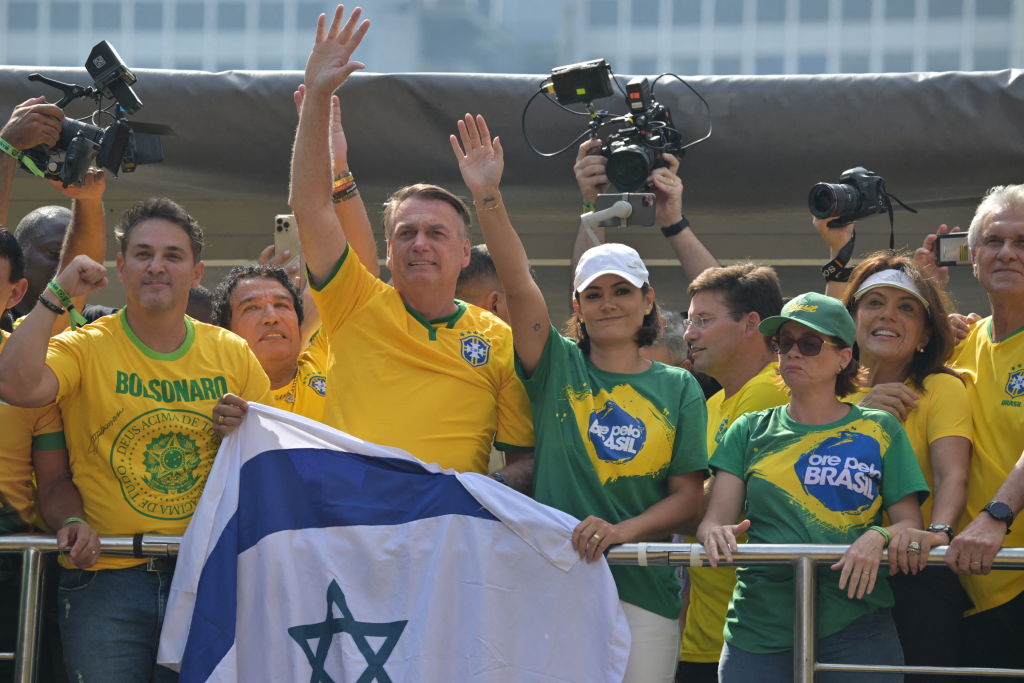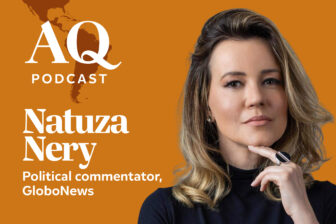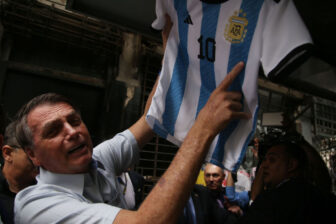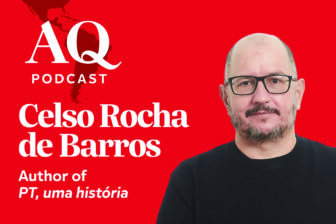SÃO PAULO — For a moment, it seemed like old times.
“Vamos ouvir O MITOOOOOO!” an announcer screamed through the PA system. “Let’s listen to the legend!” A crowd of hundreds of thousands gathered on Avenida Paulista on a Sunday afternoon, many dressed in yellow and green Brazilian soccer jerseys, cheered wildly as Jair Bolsonaro took the stage.
But it quickly became clear this was a different, more subdued Bolsonaro. Instead of attacking his adversaries, the former president focused on defending himself and his allies from legal troubles stemming from their efforts to overturn the 2022 election.
“What is a coup?” Bolsonaro mused in an almost plaintive tone. “It’s a tank in the street, a gun, a conspiracy. None of that was done in Brazil.” He complained of “abuse by some” in power, but pointedly did not mention either President Luiz Inácio Lula da Silva or Brazil’s Supreme Court, his usual villains, by name.
I was there (dressed in a noncommittal purple, for the record), and the crowd seemed disappointed by the lack of red meat. Midway through the speech, many were talking to each other. A few headed for the exits early. “I thought he was a bit apagado (faded),” Roberto Schmidt, who had traveled 14 hours by bus from Rio Grande do Sul with his church group, told me. “But he is still our leader.”
So what gives? Why did Bolsonaro show up for by far the biggest rally since his presidency ended — and then blink?
Well, Bolsonaro seems to recognize that the political reality in Brazil has shifted: That he remains the spiritual leader of a powerful conservative movement, but he is so boxed in by legal trouble that his own political career is probably finished.
In that sense, what happened Sunday was more than a rally — it was the beginning of a handoff to Bolsonaro’s potential successors.
Brazil’s electoral court has already disqualified Bolsonaro from running again until at least 2030, on charges he abused his power by casting doubt on the electoral system. Police confiscated Bolsonaro’s passport earlier this month, fueling speculation he could be headed to prison soon.
However, sources in Brasília told me they do not see Bolsonaro’s arrest as imminent. “It depends on how he behaves,” one said. As long as the former president refrains from direct attacks on the Supreme Court, especially, Bolsonaro could remain in a kind of indefinite legal limbo that is not uncommon for Brazilian politicians.
If Bolsonaro can continue to toe that line, he still has considerable political capital. His personal popularity has remained remarkably steady in the low 40s over the past year, according to Atlas Intel, a pollster. Demographics suggest the conservative shift in Brazilian politics is likely to continue. Evangelical Christians accounted for 22% of Brazil’s population in 2010, about a third in the 2022 census, and may outnumber Catholics as soon as 2033, according to projections by the national statistics agency.
But bolsonarismo without Bolsonaro could look quite different.
São Paulo state Governor Tarcisio de Freitas, in particular, seems to offer the possibility of a conservative politics without the instability and anti-democratic tumult of the movement’s founder. A career technocrat, Freitas worked in Workers’ Party governments before serving as Bolsonaro’s infrastructure minister, and has forged a cordial relationship with Lula as governor. Avenida Faria Lima, Brazil’s Wall Street, absolutely loves him.
For precisely those reasons, Freitas is seen with suspicion by some conservatives. But a survey taken by University of São Paulo researchers at Sunday’s rally found that, when asked who they preferred to succeed Bolsonaro, 61% of respondents named Freitas. Former First Lady Michelle Bolsonaro came in second, with 19%. Nobody else managed double digits.
Guess who was there on Sunday to kiss the ring.
“You represent everyone who discovered it’s worth it to fight for family, for the nation, for liberty,” Freitas said, directing his comments to Bolsonaro. He also talked about property rights, freedom of expression, “social justice,” and “predictability, so we can have the investments we need to make a difference in Brazil.”
How that mix of messages went over with the crowd was tough to tell. It was an uncertain day of transition in São Paulo.









